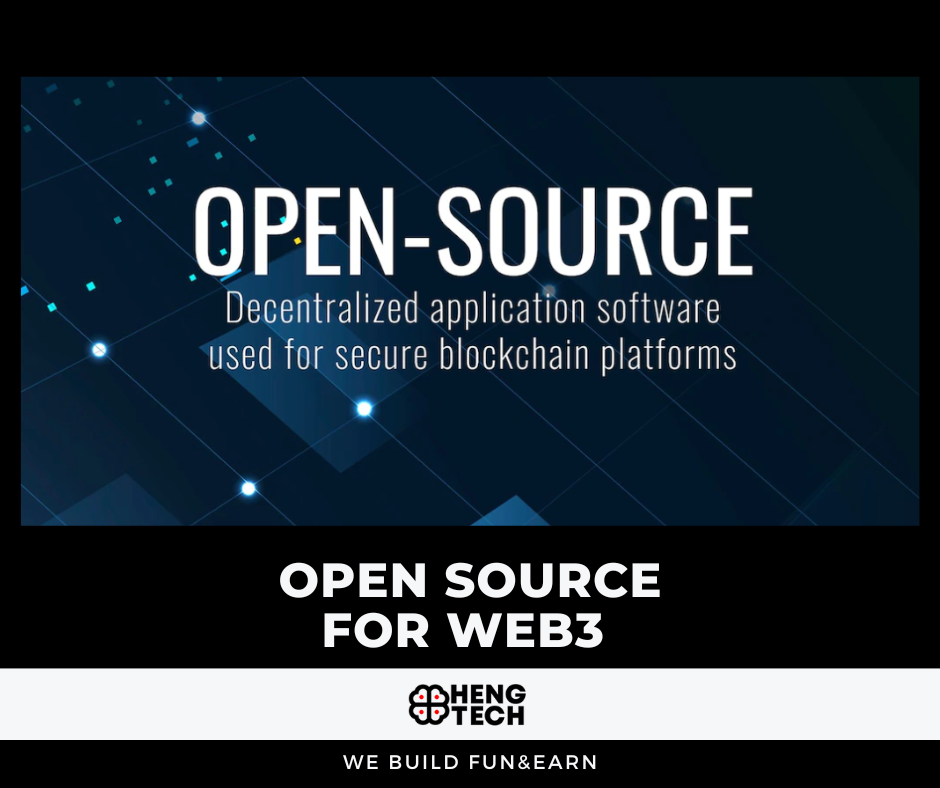Top 10 open-source for web3&Games

To get started with web3 and gamefi, it is important to learn the basics of blockchain technology and Ethereum, the most widely used blockchain platform for web3 development.
Here some 10 open source that you should learn or know about it to become master of Decentralized web , application , finance and Game.
10 open-source
- Ethereum – an open-source blockchain platform that enables the creation of decentralized applications (dApps) and smart contracts on the web3.
- IPFS – an open-source protocol that enables decentralized file storage and sharing on web3.
- Truffle – an open-source development framework for Ethereum that provides a suite of tools for building and deploying smart contracts on web3.
- OpenZeppelin – an open-source framework for building smart contracts on Ethereum that provides a library of reusable and secure contract modules on web3.
- The Graph – an open-source protocol that enables decentralized data querying on web3.
- Loom Network – an open-source platform that enables the creation of high-performance decentralized applications and games on web3 and gamefi.
- Enjin – an open-source platform that enables developers to create and manage virtual assets on the blockchain for gamefi.
- Decentraland – an open-source virtual reality platform built on the Ethereum blockchain that allows users to create, experience, and monetize content and applications on gamefi.
- Axie Infinity – an open-source blockchain-based game that allows players to buy, breed, and battle fantasy creatures on gamefi.
- Sorare – An open-source platform that enables users to buy, sell, and trade unique digital collectibles, such as player cards, on blockchain and gamefi.
Learning path
Study the web3 stack, including tools such as Truffle, OpenZeppelin, and web3.js, and learn about the IPFS protocol, which is used for decentralized file storage and sharing on web3. Additionally, study the basics of game development and game design, learn about Enjin platform and virtual assets on blockchain, and get familiar with existing decentralized games and applications such as Loom Network, Decentraland, and Axie Infinity, and Sorare. Experiment with building simple decentralized games and applications, keep updating your knowledge by following communities, attending webinars and conferences, and consider contributing to open-source projects in the web3 and gamefi space.
Make a bullet
Here is a possible learning path for getting started with web3 and gamefi:
Start by learning the basics of blockchain technology and how it works. This can be done by reading articles, watching videos, and taking online courses.
Learn about Ethereum, the most widely used blockchain platform for web3 development. Study its architecture, consensus mechanism, and smart contract programming language, Solidity.
Familiarize yourself with the web3 stack, including tools such as Truffle, OpenZeppelin, and web3.js, which are commonly used for building and deploying decentralized applications on Ethereum.
Learn about the IPFS protocol, which is used for decentralized file storage and sharing on web3.
Study the basics of game development and game design. This will help you understand how games work and how to design engaging gameplay experiences.
Learn about the Enjin platform, which enables the creation and management of virtual assets on the blockchain for gamefi.
Start experimenting with building simple decentralized games and applications on the Ethereum blockchain using tools like Loom Network, Decentraland, and Axie Infinity.
Study and learn about Sorare, a platform that enables users to buy, sell, and trade unique digital collectibles, such as player cards, on blockchain and gamefi.
Continuously improve your knowledge by following development community on forums, blog, and social media, attending webinars and conferences, and experimenting with new technologies.
Once you have a solid understanding of the basics, start building more complex decentralized games and applications, and consider contributing to open-source projects in the web3 and gamefi space.
